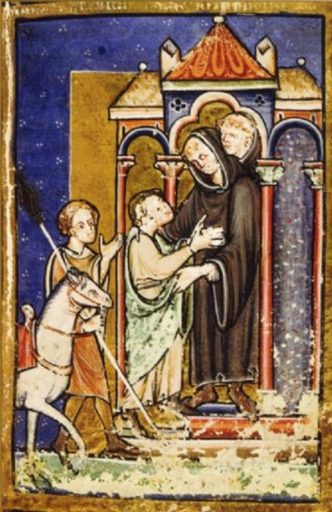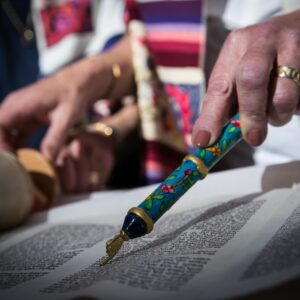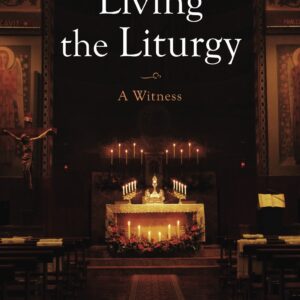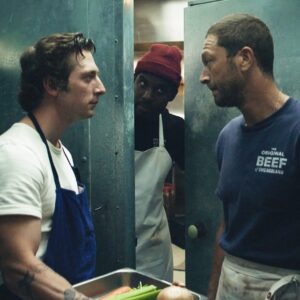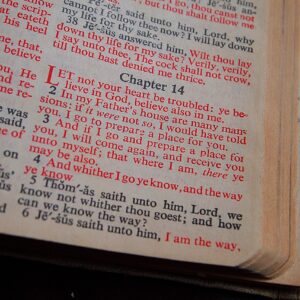One evening during the first wave of COVID-19, I and my wife, Jill, were climbing into bed when she asked, “Is someone knocking at our front door?” I thought I’d heard a soft voice from the sidewalk below a few minutes earlier, but now I, too, could hear a faint tapping. We opened the door to discover a boy about two years old dressed in pajamas and shivering in the cold night air. A slump-shouldered woman sat on the front steps. She looked up with heavy-lidded eyes and said in the muffled undertone of someone who’s had far too much to drink, “We need help.” There was no one else nearby – no car, no clue why she had chosen our house. I was wary, uncertain what to do. To be honest, I was a little scared this was a setup, a ploy to get into our house for who knows what mischief. Jill, however, took one look at the child and said, “Come on in and get warm.”
We helped the mother to her feet, picked up the boy, and brought them both inside. She was clearly intoxicated. Her clothes were neither torn nor dirty, just disheveled. She was missing a shoe. There were no signs of physical trauma. The boy looked scared, staring silently at his mother, his eyes wide, his nose runny. Whether from tears or a cold was hard to tell. The diaper under his pajamas was twisted to the side as if he’d been dressed in a hurry. In time, he stopped shaking as we talked to his mother. She said she had lost her way trying to get to the baby daddy’s house. She lived with her mother in another neighborhood where she said she felt safe. For some reason, though, she didn’t want to return there tonight. She had no cell phone or ID and couldn’t remember anyone’s number.
It was clear they needed a work of mercy. What wasn’t clear was what to do. Jill and I are both physicians, but we hadn’t trained for this. We brought them something to drink, some cookies for the boy to eat, then Jill quietly stepped away to call our pastor in search of advice. He encouraged her to call the police, which she did. By the time the officer arrived, the boy was in my lap, talking to me while rubbing his snotty nose in my shirt. We didn’t set a good example of social distancing. The police officer was annoyed at us for letting strangers in the house. Didn’t we know how dangerous Baltimore gets at night? In the end, however, he managed to trace down the mother’s mother, who quickly drove to our house to take her daughter and grandson home, thanking us profusely. The officer called Jill fifteen minutes later to say that the boy’s grandmother was grateful to have the two of them back rather than with the baby daddy, whom she described as an abusive alcoholic. “Mercy,” I said. Mercy, indeed.
We had been making it up as we went along. Few of us like to think of our personal physician doing that with us, but many cases don’t fit textbook descriptions. Here was an outlier. Yet we’d been practicing for these moments since our medical school days, when we formed habits essential to our profession, habits like prudence, courage, and truthfulness. No one in our rigorously secular medical school or residencies called them virtues. Some of our mentors admonished us to leave ultimate questions to the hospital chaplain and refer moral dilemmas to the ethics committee. But, in retrospect, I see it all refracted by my more recent formation as a lay oblate in the Benedictine monastic tradition.
Two such habits come to mind. The first is hospitality, which seems conspicuously absent in hospitals today. Yet, “hospitality” and “hospital” derive from the single Latin word, hospes, which can mean both “guest” and “host.” What’s more, these words share a root with the English word “hostile.” Linguists trace these surprising connections back to a Proto-Indo-European root which can mean “guest,” “host,” “stranger,” and “foreigner.” This jumble of contradictions appears in the ancient Greek word xenos, from which the fourth century Byzantine xenodochia – the first true hospitals – took their name. Etymologically, then, xenophobia may be less about fearing the stranger than fearing what we, the host, might be asked to do for her. Hospitality was understood as a duty and a danger at the same time. Host and guest entered a relationship of mutual obligation: the host offered protection and inquired after the guest’s needs, doing her best to meet them. The guest didn’t abuse the host’s generosity and pledged to reciprocate. But a guest’s inability to repay the favor shouldn’t make a difference. Chapter fifty-three of the Rule of St. Benedict says, “All guests who present themselves are to be welcomed as Christ.” That sets a pretty high bar, but the practice of hospitality requires the virtue of courage, which doesn’t mean you’re not afraid, but that you’re afraid and do it anyway. Hospitality is risky business, but from Abraham’s day to ours, when has it been otherwise?
The second habit is stewardship, a word whose fascinating history is too convoluted to recount here. As used today, however, faithful stewardship requires an awareness of place, need, and limits. Chapter thirty-one of St. Benedict’s Rule lists duties of the monastery cellarer, the monk who manages the material goods of the community:
He must show every care and concern for the sick, children, guests, and the poor, knowing for certain that he will be held accountable for all of them on the day of judgment. He will regard all utensils and goods of the monastery as sacred vessels of the altar, aware that nothing is to be neglected. He should not be prone to greed, nor be wasteful and extravagant with the goods of the monastery but should do everything with moderation and according to the abbot’s orders. Above all, let him be humble. If goods are not available to meet a request, he will offer a kind word in reply, for it is written: “A kind word is better than the best gift.”
How would our lives be forced to change if we looked seriously at our city or neighborhood, “aware that nothing is to be neglected?” What might happen if we accepted the limits of our technological fixes for individual problems and used what’s at hand for the community’s good, especially our presence, our embodied witness in this time of grief and isolation?
In a suffering world, habits of mercy make strong medicine. The eighteenth-century Hasidic master, Rabbi Zusya of Hanipol, once said, “All God does is mercy. Only that the world cannot bear the naked fill of his mercy, and so he has sheathed it in garments.” I’m pretty sure we are some of those garments. And even in this strange time when we’re overtaxed, anxious, and more than a little afraid of who might infect us, we’re still called to be garments of mercy.
Brian Volck is a pediatrician and writer living in Baltimore. He is the author of a poetry collection, Flesh Becomes Word, and a memoir, Attending Others: A Doctor’s Education in Bodies and Words. His website is Brianvolck.com

